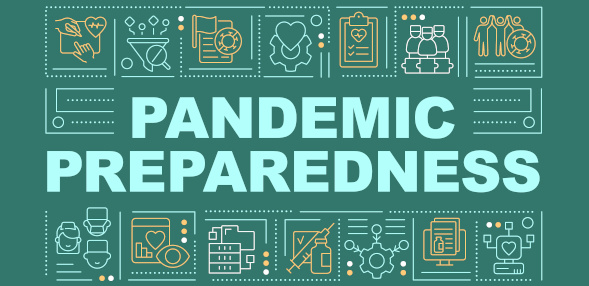”When a hazardous pathogen with epidemic or even pandemic potential emerges, it is most important to react as quickly as possible,” says Prof Michael Meyer-Hermann, head of the Department of Systems Immunology at the HZI. ”We are developing LOKI as an early warning software that will support health authorities in the future in detecting local outbreaks and modelling the infection scenario according to regional characteristics - to allow tailor-made measures to be applied.” After all, life in the big city is different from life in the countryside. Especially these differences in lifestyles - be it the number of professional and private contacts, daily journeys, household size, or age structure of a region - have a clear effect on the infection scenario.
Together with his colleague Dr Sebastian Binder, Meyer-Hermann is coordinating the four-year project, in which other partner institutions are involved aside from the HZI. ”The first phase of the project will be concerned with gathering the local data that make up the characteristics of each region. This will be done with the support of five public health departments participating in the pilot project,” explains Binder. Since the pooling of data in the health sector is associated with strict requirements concerning the protection of private data, privacy, and IT security are priorities in the project and fall under the responsibility of CISPA, which specialises in information security. Prof Cas Cremers, senior researcher at CISPA: ”This is a once-in-a-lifetime opportunity to have an early impact on decision-making processes in a pandemic situation through the pooling of data. But at the same time, this means that it is imperative that we ensure the security and protection of the privacy of the system we are developing." His colleague Prof Mario Fritz adds: ”If we can integrate different data sources in a secure and privacy-compliant manner, it will allow us to be much better prepared for pandemic events in the future. The knowledge garnered from this data can be used to design countermeasures in a more specific way and thus more acceptable to society as a whole.”
The data thus obtained are supplemented with publicly available data and then enter into an automated modelling process. Results from the wastewater monitoring of Prof Antonis Chatzinotas' research group at the UFZ are available as an additional data source. ”The vast amounts of data are then fed into various equation-based and agent-based computer models that we are designing for LOKI. High-performance computers can be used to make detailed predictions about how the outbreak might develop locally and what effect the measures taken might have,” explains high-performance computing expert and research group leader Dr Martin Kühn from the German Aerospace Center. To this end, Forschungszentrum Jülich is developing a secure cloud infrastructure as well as customised, highly automated tools for real-time analysis of infection events while taking uncertainties in the forecast into account.
At the heart of the LOKI project is the close cooperation with the public health departments partaking in the project which are involved in all development processes. ”After all, LOKI is to be accepted later on and has to function smoothly when it is applied,” says Meyer-Hermann. Prof Dagmar Starke, head of the Academy for Public Health Services (AÖGW), adds: “For this purpose, we are developing teaching and advisory concepts in LOKI to implement and optimise the new early warning software for the detection of epidemics in the public health departments.”
The project partners:
Akademie für Öffentliches Gesundheitswesen (AÖGW)
CISPA Helmholtz Center for Information Security
Forschungszentrum Jülich
Helmholtz Centre for Environmental Research (UFZ)
German Aerospace Center (DLR)
